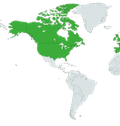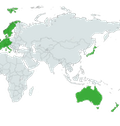I know I’ve expressed dislike for the guy in the past, but seriously? I thought for even something like this, he would at least have a good take on it.
I know I’ve expressed dislike for the guy in the past, but seriously? I thought for even something like this, he would at least have a good take on it.
Those numbers are actually very boring because it's just someone taking the estimated, rounded percentages and extrapolating using the total number of votes.
In the US plenty of states use easily hacked and tampered-with voting machines and the final results of elections still aren't known for weeks. There are no election observers and nobody is using a paper trsio to audit the results in front of a multi-party (lmao) delegation. Voters themselves are routinely prevented from actually casting their vote due to the lack of an accessible national voter ID system, last-minute polling station location changes and closures, and understaffing/underresourcing that not coincidentally hits opposition strongholds preferentially. On top of this, the incumbant members of the only two relevant electoral parties, both imperialist, usually get to more important R less redraw their own districts to ensure wins by picking their voters.
And yet when a country with a much more verifiable system releases some roundabout stats or takes a bit less than a week to produce a full tally we are meant to believe the (usually evidenceless) narratives of absurd Imperialist NGOs, neoliberal reactionary opposition candidates that say these things every time and before voting has even begun, and Reddit-liberals that know less than we forget in a week?
I love little details that reveal sneaky behavior but so far it has been so booooring.
There is zero reason to do this. What are the estimates based on? Why estimate percentages at all? Just count the votes and give us the corresponding percentages. You're telling me they knew the exact total number of votes but not the exact number of votes each candidate got? But somehow still had enough information to estimate percentages closely matching the final results? Why is everyone pretending this is not weird lol.
I even double checked where the numbers came from, thinking maybe a journalist calculated them from the CNE's percentages or something. But no, the CNE straight up officially said Maduro got 5,150,092 votes. They also don't give the total number of votes, meaning that number was obtained by adding up the results given by the CNE, and not the other way around as you suggested.
You're right that US elections are a sham. If the 2020 Iowa caucus happened in a Latin American country the
 would have done their usual seriously-concerned-about-the-legitimacy-of-this-election routine. That's irrelevant to whether Maduro cheated or not though.
would have done their usual seriously-concerned-about-the-legitimacy-of-this-election routine. That's irrelevant to whether Maduro cheated or not though.
This question is basically, "why ever do a projection or estimate?" The answer is, "because you don't have all the data". In that same CNE announcement they said 80% of results had been transmitted.
They seem to have estimated turnout as well, which makes sense given that the final count wasn't done.
CNE's Aug 2 results announcement gave Maduro a nearly 1% higher victory.
Double standards such as those applied to Venezuela operate primarily by distorting perceptions through emphasis.